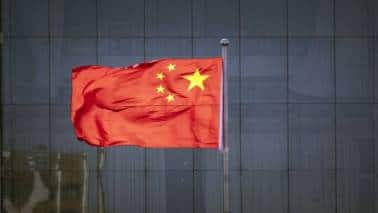
BUSINESS
Why disconnecting global trade from China is so hard
Some parts of the supply chain are easier to shift than others, and much of it comes down to chemistry
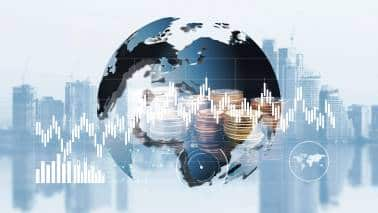
BUSINESS
We’ve already picked decoupling’s low-hanging fruit
Fragmentation is real. But there’s a long way to go before supply chains are free from an addiction to China

BUSINESS
China’s flight suspensions are bad for Singapore ties
Flights between Singapore and China’s Chongqing and Chengdu will be halted less than five months after they began. This is the second time in a year that Singapore Airline’s flights to China have been interrupted by regulatory uncertainty
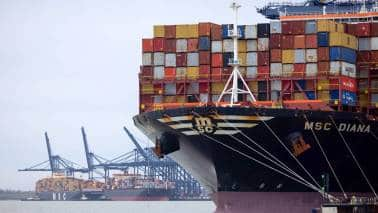
BUSINESS
March madness is coming for the global shipping industry
March is the traditional low season for the global logistics industry and also the time when ship operators, importers and freight forwarders sit down to discuss long-term contracts. With multiple international crises including wars and economic uncertainty, companies are having a tough time deciding how much long-term capacity and revenue targets to lock in

BUSINESS
Indian airlines shouldn't gamble with stricter safety
Indian pilots are exhausted, battling erratic schedules, consecutive late-night departures and excessive hours. Yet airlines are pushing back against new DGCA rules that mandate longer breaks and shorter work hours for cockpit crew. Fearful of higher costs and restricted operations, carriers want to delay implementation. They shouldn’t

WORLD
South Korea weapons makers must think beyond Ukraine
If the conflict continues to drag on, South Korea’s expanding production capacity and growing reputation as a reliable supplier will elevate its position in the global weapons trade. But it must also prepare for peace, and ensure it has developed a sector that can persist without war

BUSINESS
China: Huawei's success and struggles offer a blueprint for Comac's aircraft sales
The origin stories of Huawei and Comac are similar. Although the former is not state-owned, both benefit from serving explicit national interests, alleged technology theft, and continuously securing local orders at the expense of arguably superior foreign alternatives. Yet Huawei’s global success in winning long-term orders goes beyond these reasons
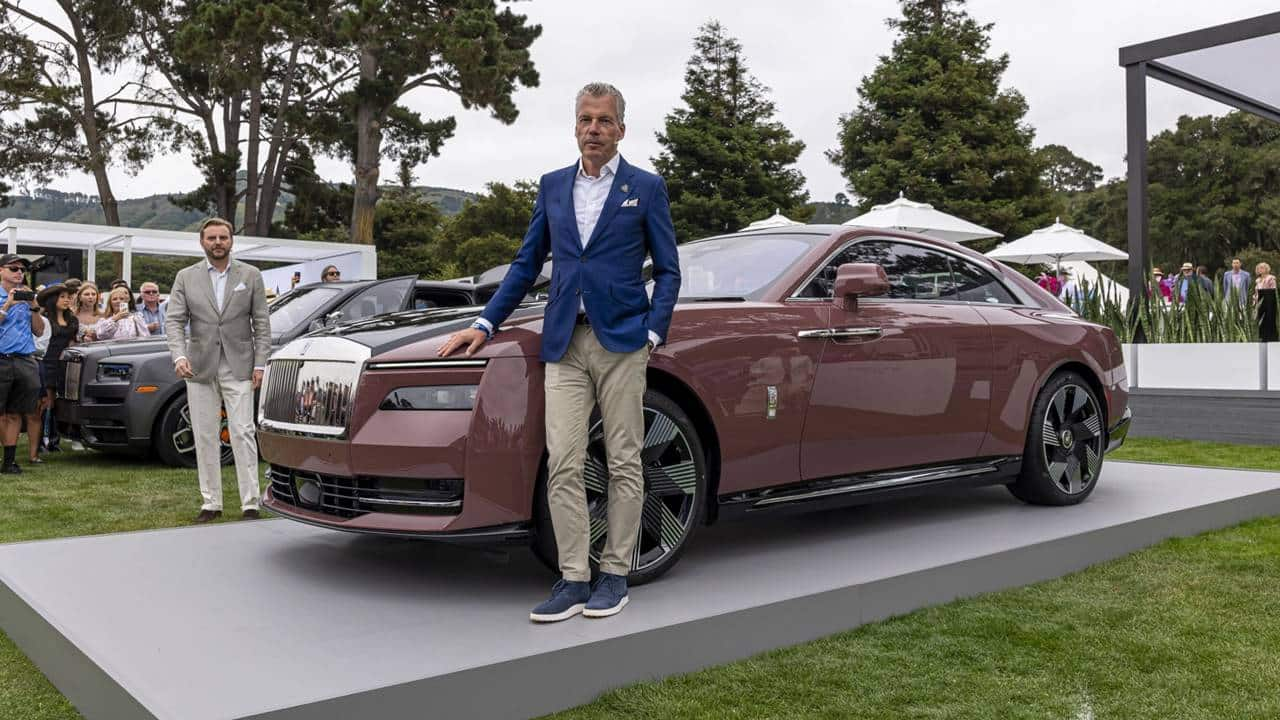
TECHNOLOGY
To sell an EV, put a $420,000 price tag on it
For established brands with a strong track record, taking an electric leap and targeting those buyers willing to spend big money appears to be the best path forward through the current EV winter. An added benefit may come from flow-on effects as technology developed for high-performance cars eventually flows through to mass-market vehicles, boosting power and making EVs more sustainable and affordable in the long run
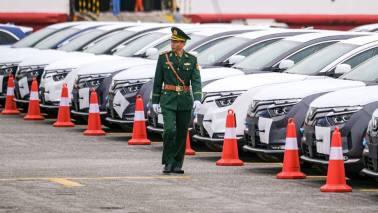
BUSINESS
India’s true manufacturing rival is Vietnam, not China
Though India is getting a lot of overseas investment, Foxconn Technology Group’s announcement last month that it will spend $100 million on a new plant in Vietnam is a reminder that it doesn’t hold a monopoly over business migration away from China. India stands out among peers in implementing higher import duties, which motivate companies to set up in the country to supply local consumers but makes them less competitive in the export market

BUSINESS
EV Technology: The US should copy China’s playbook
A study by the National Bureau of Economic Research found that Joint Ventures with foreign partners produced some of China’s biggest technological advancements, not just for the local partner but for others in the same industry. If Chinese battery companies like BYD and CATL want to sell into the US, they can be made to do so only through joint ventures
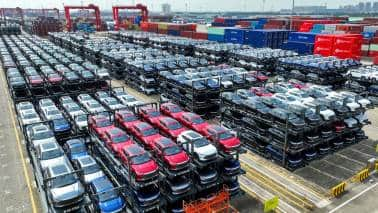
TECHNOLOGY
Foreign auto makers exiting China are making a smart move
Strategic reductions by many companies are a sign of pragmatism and an acknowledgement that the world’s largest car market isn’t necessarily a profitable one. Pricing power, government subsidies, and the speedy adoption of new-energy vehicles like battery and hybrid-powered models by Chinese automakers made foreign brands increasingly redundant
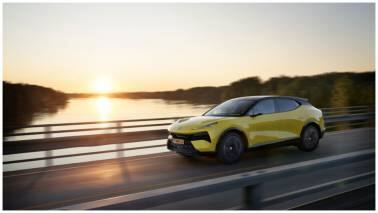
TECHNOLOGY
Chinese EV shipping deals are either savvy or very risky
Chinese companies like BYD and SAIC are more worried about getting their cars to market rather than its costs. When you’re a fast-growing company intent on breaking into new territories, long-term strategy may trump short-term financial returns. Should foreign markets like Europe, the US and the Middle East really take to Chinese EVs, then these ship deals will seem savvy. If not, they could hang like an albatross around carmakers’ necks
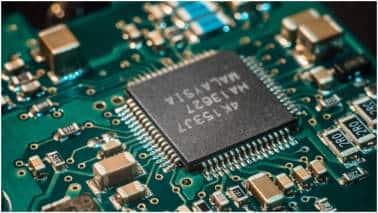
BUSINESS
Global Chip Rebound: TSMC thanks you for your love of chat bots
All TSMC and co need now is for us to keep chatting with bots, create AI-generated cat videos, and let computers write school essays. Global semiconductor industry revenue will climb at least 10 percent this year
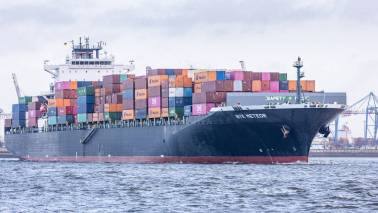
BUSINESS
Supply Chains: Canals aren’t even the world's biggest shipping chokepoints
Five thousand miles from the canals of Suez and Panama lie even more important shipping lanes, chokepoints that could cripple global trade should any disaster befall them
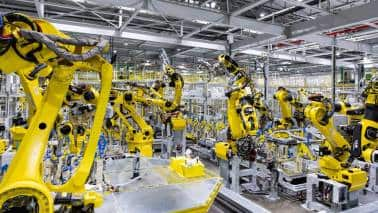
BUSINESS
A hidden hero will drive South Korean trade closer to the US
The US will also lean on South Korea for batteries, machinery and auto parts as Washington drives new policies aimed at ensuring a greater share of new-energy cars are made on home soil. For long close military and political allies, in the coming decade trade will become an equally important part of the relationship

BUSINESS
China’s Boeing alternative starts to look enticing
Rather than touting massive orders from global carriers, Comac is quietly picking up smaller, lesser-known airlines — using those as a proving ground. Right now, the biggest benefit is to fill Chinese carriers’ demand for planes allowing other countries to soak up Boeing and Airbus output with the industry awaiting delivery of hundreds of aircraft

BUSINESS
You too may one day have your own satellite
The next battle, among private companies, promises to make satellites as cheap and accessible as an iPhone with off-the-shelf parts that survive just a few years
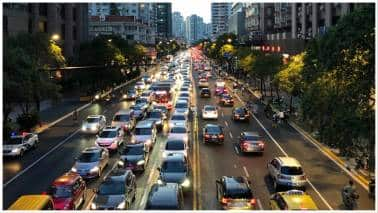
TECHNOLOGY
Gigacasting will change how you buy, sell and crash a car
Gigacasting, which reduces the number of car panels, has the potential to lower prices but can complicate repairs and transfer costs to owners

BUSINESS
Airlines are watching one number, the return to normal metric
Passenger load factor, that shows the percentage of capacity utilised, stands roughly similar to 2019 pre-pandemic levels at 81.3% for Asia in 2023 against 69.2% in 2022. But executives don’t know whether the high-load factors they’re running now will remain elevated when new capacity is added, or if demand for travel is already near its peak
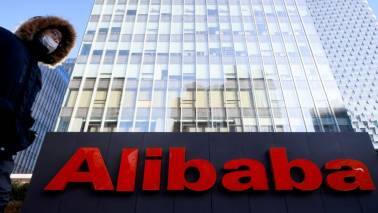
BUSINESS
Alibaba shows gap between chip haves and have-nots
Some leading companies like OpenAI, Alphabet Inc, Anthropic and Meta Platforms Inc have plenty of GPUs. Alibaba, with $63 billion in cash and annual free cash flow topping $27 billion, finding itself caught short on one of the most important facets of its most-promising business, have led investors to dump the stock, wiping out close to $25 billion in market value in a matter of days
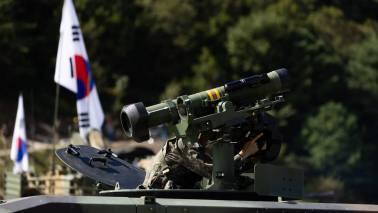
WORLD
South Korea's emergence as a major arms exporter
While South Korean companies are best-known for producing artillery, their reputation for more-sophisticated arms is growing. More importantly for Asia, it would rebalance weapons supply and demand. Six of the world’s top-10 recipients of major arms are Asian, yet only two of the leading nations that supply weapons are in the region. Seoul's rise reduces the need to rely on Western countries
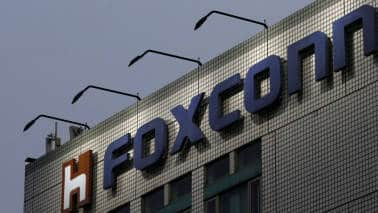
BUSINESS
Foxconn: The iPhone maker is now chasing EVs and satellites
Global tech companies are trying to figure out what’s to come after successive booms in desktop PCs, mobile phones, laptops and smartphones. The true moneymaker is inside, with all the cables, components and microcomputers and this is where Foxconn wants to cash in
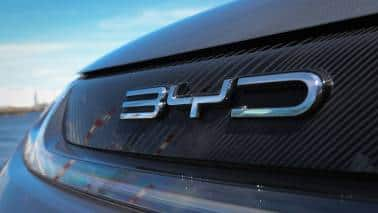
BUSINESS
BYD is close to overtaking Tesla, but Berkshire Hathaway had once warned it about car business
That two men of similar age and with no real background in automotive engineering could turn the global car market upside down says a lot about what’s needed to reinvent a product that has changed little in 100 years
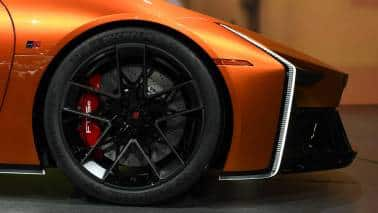
BUSINESS
Toyota’s Sato needs to truly believe in an EV future
Splitting bets among hybrids, hydrogen, current battery EVs and solid-state technology seems pragmatic for Toyota CEO Koji Sato. It’s unclear which of these solutions will unlock Toyota’s alternative-energy future. But it also risks stretching the carmaker thin, especially when the success of any of these strategies isn't certain















